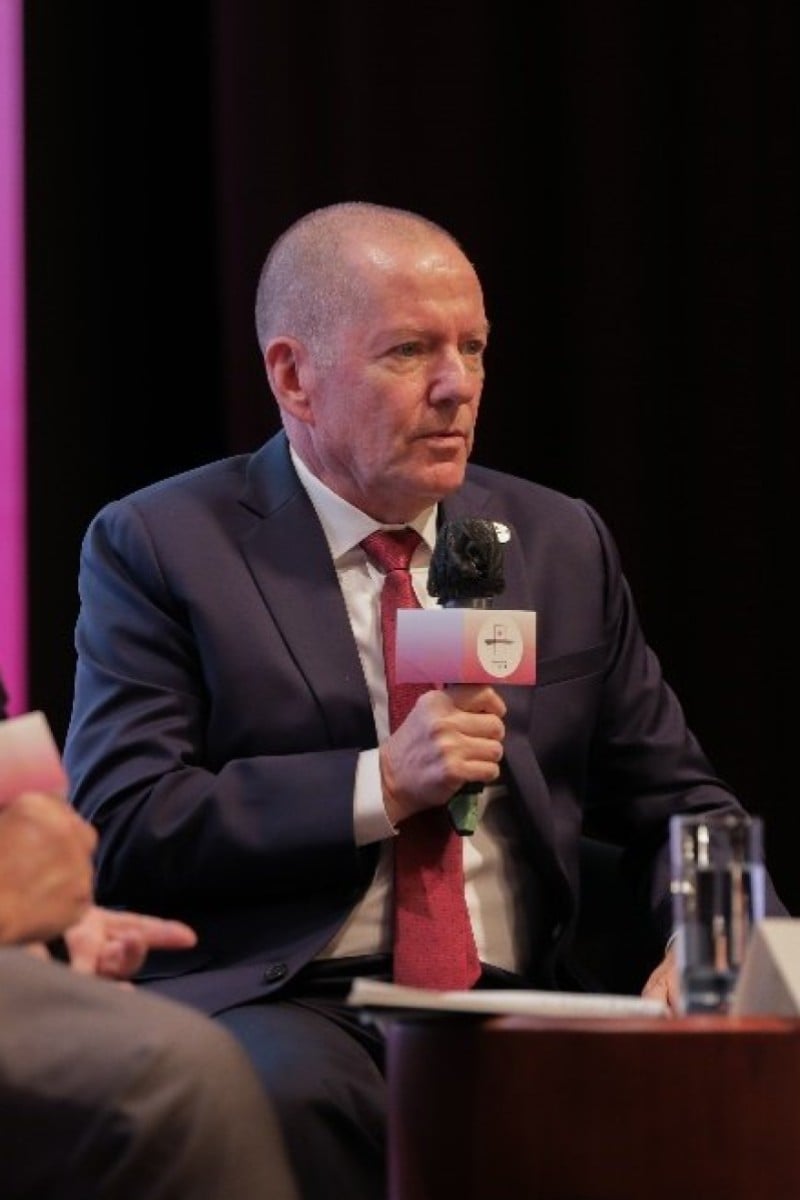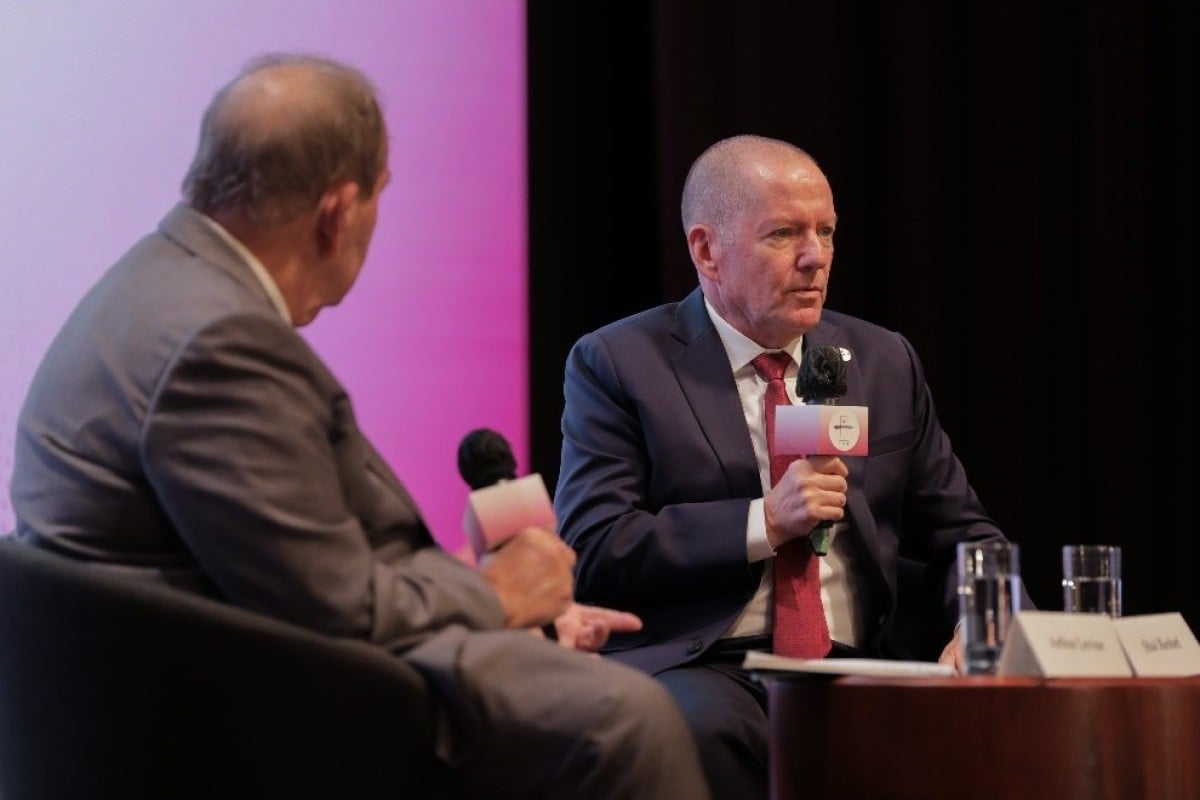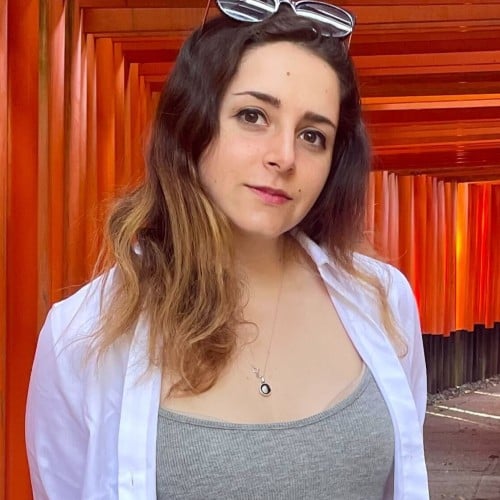
Yidan Prize winner Shai Reshef, founder of free online university, advocates for greater accessibility in higher education
- The University of the People is an accredited, online institution staffed by volunteers that offers a variety of undergraduate and graduate programmes to people worldwide
- Awards ceremony was held in Hong Kong earlier this week, where Chief Executive John Lee spoke on the city’s commitment to supporting students with diverse backgrounds and needs
 Shai Reshef received the Yidan Prize for Education Development for his online, tuition-free university The University of the People at the Yidan Prize Summit in Hong Kong. Photo: Yidan Prize
Shai Reshef received the Yidan Prize for Education Development for his online, tuition-free university The University of the People at the Yidan Prize Summit in Hong Kong. Photo: Yidan PrizeBefore you read: The founder of The University of the People, Shai Reshef, won the Yidan Prize for his institution’s mission to offer free and easily accessible online education. The awards ceremony was held in Hong Kong last week.
Think about it: What barriers to education still exist in society, and how can we promote inclusivity?
Shai Reshef, founder and president of The University of the People (UoPeople) in the United States, woke up one morning to a series of missed calls from Hong Kong.
Only when he checked his email did Reshef realise he had won the prestigious Yidan Prize for Education Development, honouring his hard work and vision in founding his non-profit, tuition-free online university in 2009.
His pioneering institution aims to revolutionise learning by making higher education accessible to everyone worldwide, regardless of finances or personal circumstances. The accredited university is staffed by thousands of volunteers and offers bachelor’s and master’s degrees in fields such as business, health science, computer science, and education.
Hong Kong teachers express concerns over new primary science subject set to replace general studies
Students don’t pay to take classes or for course materials, like in a typical university. Instead, UoPeople charges application fees from US$60 (HK$469) to US$100 (HK$781) to enrol in courses, and students pay an assessment fee at the end of the class, which ranges from US$120 (HK$937) for undergraduate programmes to US$300 (HK$2,344) for graduate courses. Students in need can apply for scholarships or grants to cover these fees.
UoPeople currently has 137,000 students enrolled across 200 countries and 24 time zones; around 16,500 of them are refugees.
“The students who come to us – many of them have needs,” Reshef said. “Some simply cannot afford higher education. Some are working adults who need flexibility. Some of them are refugees.”
One such student is Li Pui-ha, a 32-year-old Hongkonger who completed her Master of Business Administration (MBA) at UoPeople last month.
Despite taking courses in a fully online environment, Li said she received one-on-one attention throughout her postgraduate programme.
“I received a compliment from a professor,” she recalled. “[He said] he wished that ‘only the zone beyond the blue sky be my limit’. It was very touching, especially since I was studying online; receiving that message was really encouraging and inspiring.”
With support from her professors and the flexibility to take online classes while working full time, Li completed her degree and landed her dream job, working as a writer with a clear path for career progression.
Hong Kong’s Education Bureau gives HK$80,000 grant to local schools for mental health awareness
“Ever since I was a little girl, I wanted to be a writer,” Li said. “This university allowed me to observe writing from [many] different origins.”
Reshef said the university’s model guarantees that each student receives personalised attention and care.
“For every student, we have an adviser who helps with any issue ... whether it is a technical issue, payment or submitting homework late, the adviser is there. When they study, it’s in a class of 20 to 30,” Reshef said.
According to its website, The Yidan Prize Foundation is “a global foundation committed to creating a better world through education”. Established in 2016 by Chinese philanthropist and co-founder of Tencent Charles Chen Yidan, the organisation recognises two people annually. Prizewinners receive HK$30 million (US$3.8 million), half of which goes to the recipient, and the other half funds a project they have proposed.
Also recognised this year was Professor Michelene Chi from Arizona State University in the US, who was honoured for her pioneering research in cognitive science, including her widely adopted theory of cognitive engagement, which has set a benchmark for defining active learning.
Reshef plans to donate the Yidan Prize money to his university, saying he wants to create more visibility for the school, bring AI services to students, and launch a programme in Spanish for Venezuelan refugees.
“One of the biggest gaps [in higher education] is that it is exclusive, and when you look at the world, it’s a privilege for a few and not a basic right,” Reshef said. “I believe that it can be a basic right; we can serve everyone, and that is what we’re doing, with a model that accommodates as many students as [needed].”
From biomedicine to Hong Kong’s doctor shortage, what is HKUST’s goal for proposed medical school?
The awards ceremony was held in Hong Kong on Sunday and officiated by Hong Kong Chief Executive John Lee, who spoke about the power of education and how it can transform our communities and economies.
“Education can help realise a more equitable and inclusive world,” Lee said. “Education is ‘the most powerful weapon which you can use to change the world’, to quote Nelson Mandela.”
Lee said the Hong Kong government has stepped up support for students with diverse backgrounds and educational needs and is looking to distinguished educators to enhance the ability to teach, learn and make education more widely accessible.
Emigration wave to Britain sees primary school student numbers fall drastically in Hong Kong
The ceremony was followed by a summit in Wan Chai on Monday, where more than 300 attendees came together to discuss the practices impacting educational change worldwide.
Charles Chen Yidan, founder of the Yidan Prize, firmly believes in the power of the ideas outlined by these visionary educators.
“Their collective vision leads people to understand that all students can and must succeed. They challenge us to reconceive what good classrooms and good teaching practices look like,” he said. “They lead us to the conclusion that good education can be made available to everyone. Their actions are continuously reshaping education, further solidifying their commitment to this belief.”
